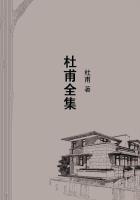"In other countries also this tradition can long be recognized, though subject to much alteration. At Athens for instance, andin several Greek cities, the magistrates, and those who are distinguished for especial services, take their meals in thecommon hall, or Prytaneum : (21) and when a young man is newly admitted into the tribe, all the members partake of thesacred food with him. (22) At Rome, too, every curia had its banqueting-ball, aud all the curiae have a common hall, very likethe Prytanea of the Greeks, says Dionysius of Halicarnassus. (23) May we not naturally refer all these recollections to theprimitive custom of common repasts? Aristotle, struck with the great antiquity of the custom in Italy, concludes that itoriginated in this country, and thence passed to Greece. (24) Dionysius of Hallcarnassus, on the other hand, after mentioningthe public repasts of the Roman curiae, recalls the Lacedaemonians, and concludes that Romulus borrowed them from thelegislation of Lycurgus. Not so, however: Romulus borrowed nothing from Lycurgus, as Dionysins supposes, nor didGreece copy Italy, as Aristotle would affirm. Alike in Greece and Italy, the custom of common repasts was established quitenaturally,or rather was maintained. In both countries it remained, as a lingering evidence of the old nomadsc life, (25) and theprimitive community of the soil: in both countries religion and custom preserved the memento."Aristotle eulogizes the common repasts as a means of maintaining equality:"In Sparta and all Greece the legislator had thewisdom to base the community on the custom of public repasts." (Lib. II c. 2.) "The common repasts of the CarthaginianHetairies resemble the Lacedaemonian phidities ." (Lib. II. c. 8.) "The establishment of these common repasts is generallyregarded as applicable to every well constituted state. I am of this opinion myself, but it is necessary that every citizen,without exception, should take part in them. The expenses of divine worship are still a common burden of the state. Theland, therefore, should be divided into two portions: the one for the public, the other for private individuals. The first portionwill then be subdivided to meet the expenses of religion and of the common repasts." (Lib. IX. c. 9.) "The establishment ofcommon repasts is quite as ancient: in Greece it goes back to the reign of Minos, and in Italy it can be traced to a still moreremote period." (Lib. iv. c. 9.)
Not only is the primitive community preserved to us in traditions concerning the golden age and in certain radicallycommunistic institutions, such as that of the common repasts; but it has also left its impress on the constitution, the laws, themanners and the ideas of antiquity. In Greece the individual is always sacrificed to the State, and political writers, likeAristotle and Plato, have continually in view the maintenance of equality of conditions, by imposing certain limits onindividual activity, and especially on the accumulation of landed property in the hands of a certain number of persons. Greatlegislators, such as Lycurgus and Minos, are said to have based the constitutions attributed to them on a new division ofproperty. The idea of regulating the distribution of wealth, so as to check excessive inequality, recurs at every moment in thewritings of the ancients, and it is from them that Montesquieu and Rousseau have derived it. As M. Viollet correctlyremarks, the origin of individual property is nearly always referred to an original division, effected on the footing of equality,which makes us suppose, that before this distribution the soil was collective property, or that it was at least thought to be soby those who related these facts. M. Viollet quotes a great number of these distributions noticed by ancient authors.
"The tradition of this distribution is common among the Greeks: we meet it among the inhabitants of the Cyclades, (26) ofTenedos, Lesbos and the neighbouring islands. (27) It also exists in Sardinia; (28) and it is to be found in the Peloponnese whenoverrun by the Dorians."
We may here remark that minute discussions have been raised with regard to the division of the soil by the Dorians: (29)it
seems that we can separate history and legend on this point with considerable certainty. There was a nearly equal division oflands ( ) at the time of the Dorian invasion. This is the history of the matter, and we have evidence of the factsin Plato's Laws .
But this distribution of lands has been attributed to Lycurgus, which is the legendary part of the account. Lycurgus, asemi-traditional personage, would thus have absorbed an anterior fact. This supposition is corroborated by the existence of atradition, in other respects erroneous, which makes Lycurgus contemporary with the Heracleidae, and by a criticalconjecture of Timaeus, who is compelled to assume the existence of two Lycurgi.
To return to M. Viollet:
"Aristotle mentions several countries, Loon in Magna Graecia, (30) Thebes, (31) Leucadia, (32) in which the original number ofproperties were carefully maintained. This idea hardly admits of any explanation, but that of a primitive division: anexplanation all the more probable, inasmuch as it can be verified with certainty, for a town that we have not yetmentioned,Thurium. Here we have two distinct evidences: one, that of Aristotle, (33) who mentions the usurpation of thelands by a small number of patricians in spite of the law forbidding such acquisitions; the other, that of Diodorus, whorelates the early tradition of such a distribution. (34) This primitive tradition evidently explains the legislation to whichAristotle alludes. In Sparta, the tradition which we find presents a remarkable feature. Here there is not a mere division, huta division into equal shares, or at least, a distribution which involves a certain degree of equality ( ).















